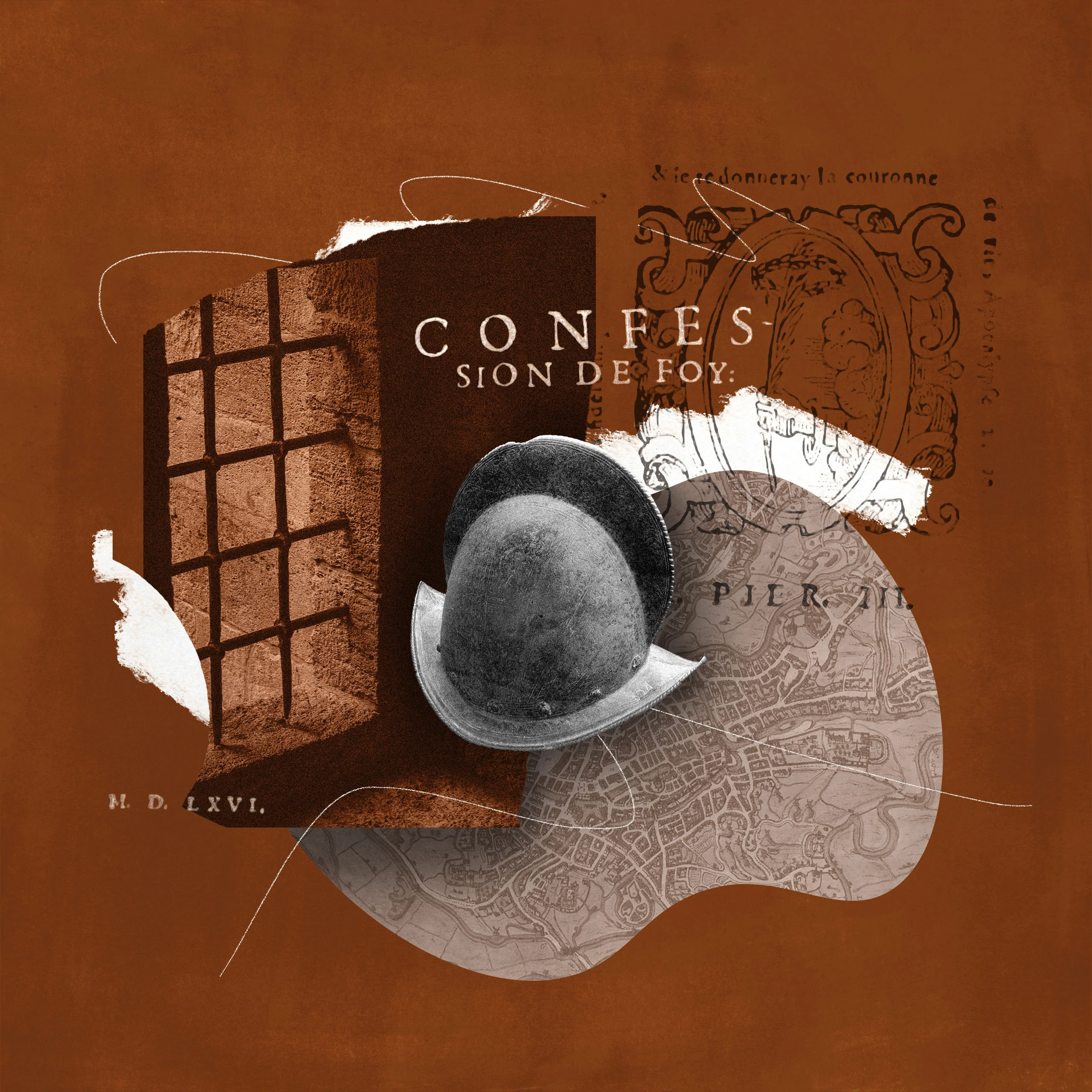Who Was Guido de Bres?

Guido de Bres (1522–1567) was a Protestant preacher who served among the churches of the Spanish-controlled Low Countries, now known as Belgium and the Netherlands.
In 1522, the year of de Bres’ birth, Holy Roman Emperor and Spanish King Charles V (1500–1558) introduced the Inquisition into the Low Countries. The Inquisition’s stated purpose was to combat heresy, but its brutal methods also preserved the monarchy’s power over the Spanish kingdom. In de Bres’ early life, the Inquisition posed little personal threat; he was raised as a devout Roman Catholic and would have been expected to follow his father in the politically innocuous trade of glass painting. But before the age of thirty, through the reading of Scripture and Reformed literature, de Bres converted to Protestantism. This was a dangerous decision.
From 1548, the year after his conversion, until 1566, the year before his death, de Bres frequently relocated from the Low Lands to places less likely to result in his martyrdom. As a novice Protestant, de Bres sought refuge in England under the young King Edward VI (1547–1553). Here he gained theological education, perhaps engaging fellow Protestants Martin Bucer (1491–1551) and John a Lasco (1499–1560). In 1552, shortly before the ascension of “Bloody” Queen Mary I (1516–1558), he returned to the Netherlands to care for several Reformed congregations. In 1555 he published his first book, The Staff of the Faith, a vigorous critique of Roman Catholicism*.
As persecution at home became fiercer, de Bres again fled his homeland to Germany and Switzerland, where he came under direct influence of well-known Reformers. De Bres had personal contact with John Calvin (1509–1564) and studied the biblical languages under Calvin’s protégé Theodore Beza (1519–1605). When de Bres’ study was later raided, authorities confiscated banned books by Calvin, Luther, Zwingli, and others, in addition to a 1559 letter from Calvin. But as a true Renaissance humanist, de Bres’ influences were much older than Reformation authorities. He once wrote that none of his theology was his own; “all things are from the ancients.”
Still, along with other Reformers, de Bres was viewed as an innovator and was strenuously pursued by Inquisitors. Our knowledge of his appearance—he was tall, thin, stooped, pale, long-faced, and red-bearded—comes from descriptions given by authorities seeking his arrest. Despite assuming pseudonyms and frequently relocating, the increasing audacity of the people he shepherded made it harder for him to remain incognito. In 1561, for two consecutive nights, believers influenced by de Bres’ teaching illegally paraded the streets singing psalms. On the second day of demonstrations, the crowd grew to several thousand people. Spanish King Phillip II (1527–1598) sent soldiers to punish the Protestants.
As de Bres was escorted to the gallows, he encouraged his fellow prisoners: “I would never have thought that God would have given me such an honor” as to die for Him.
Within a month of the psalm spectacle, de Bres’ most enduring work began to surface. Its writing, printing, and distribution were covert—its dissension from Roman Catholic dogma made it a banned book. But its very argument was a plea for toleration. In thirty-seven brief articles covering the traditional heads of Christian doctrine, de Bres’ Belgic Confession (1561) sought to prove the biblical orthodoxy and civic loyalty of reforming Christians. Not surprisingly, the author denounced “the Anabaptists, other anarchists, and in general all those who want to reject the authorities and civil officers and to subvert justice” (art. 36; cf. 18, 34). But the confession was not just a legal defense. It was a true apologetic; one first-edition printing prominently quoted 1 Peter 3:15. The writer was honoring Christ the Lord as holy by offering a defense of the reason for his hope in God. It has been compellingly argued that the Belgic Confession is an outreach document with “an original missionary nature and intent.” Its author was clearly driven by missionary zeal. “I proclaimed the Gospel,” he wrote, “and instructed the people in the knowledge of the Son of God, and if I had a hundred thousand lives I would be willing to expose them all to death for the confirmation of that doctrine.” Following the publication of his confession, de Bres again went on the run, this time to France. But the hunt was intensifying. Authorities searched de Bres’ home, confiscated his books and papers, and publicly burned his effigy.
By 1566, the situation seemed safer for Protestants in the Low Lands. Returning again from exile, his preaching drew so many listeners that no building could hold the crowds. So he preached in fields, sometimes to as many as twenty-five thousand people. As the Reformation gained sway, Protestants demanded use of existing buildings for Reformed worship services. When the request was denied, against de Bres’ instructions, mobs descended on Roman Catholic Church buildings, destroying images and furniture deemed offensive to biblical worship.
The authorities’ response was swift and firm. After a short siege, the soldiers of Phillip II finally arrested de Bres in 1567 and imprisoned him for two and a half months. While incarcerated, de Bres wrote moving letters to his mother and to his wife Catherine, whom he called his “dear and beloved wife and sister in our Savior Jesus Christ” and who had borne him five children in their eight years of marriage. As de Bres was escorted to the gallows, he encouraged his fellow prisoners: “I would never have thought that God would have given me such an honor” as to die for Him.
Editor’s Note: This article was originally published on December 13, 2022.


